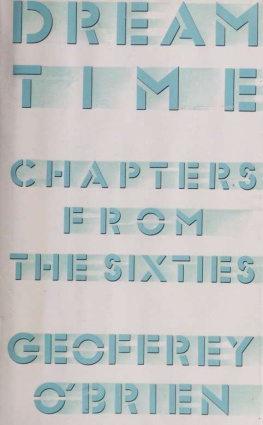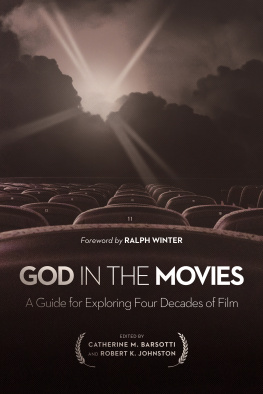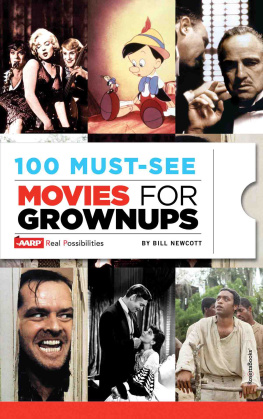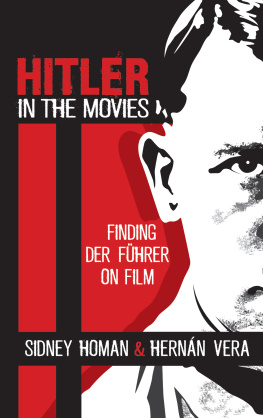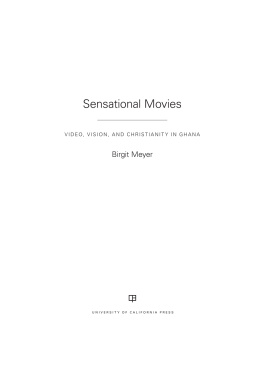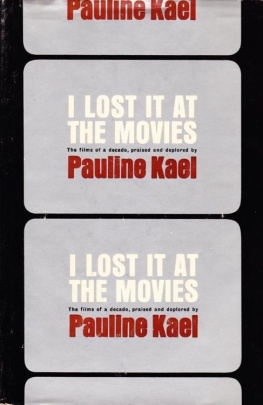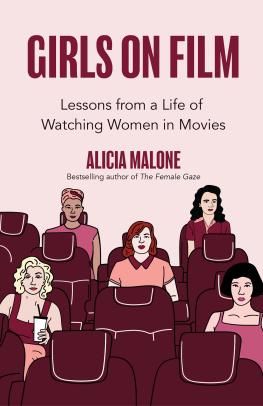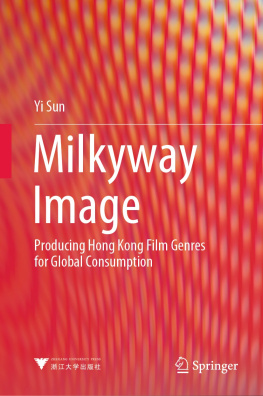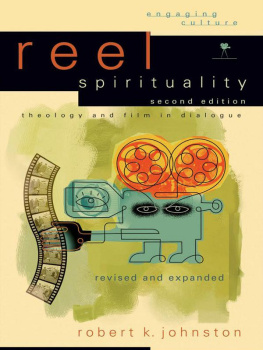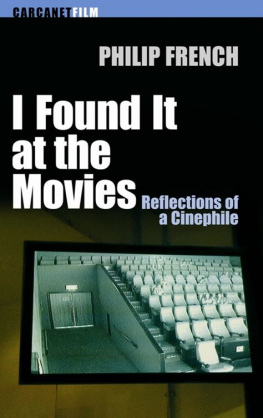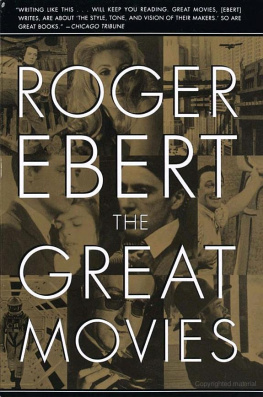
Also by Geoffrey OBrien
PROSE
Hardboiled America: Lurid Paperbacks and the Masters of Noir
Dream Time: Chapters from the Sixties
The Phantom Empire
The Times Square Story
Bardic Deadlines: Reviewing Poetry, 19841995
The Browsers Ecstasy: A Meditation on Reading
POETRY
A Book of Maps
The Hudson Mystery
Floating City: Selected Poems, 19781995
COUNTER POINT
BERKELEY
Copyright 2002 Geoffrey OBrien
Grateful acknowledgment is made to the following publications in which these essays were first published, in slightly different form: American Heritage; Film Comment; Filmmaker; The New Republic; The New York Review of Books; The New York Times; Newsday; O.K. You Mugs: Writers on Movie Actors (Pantheon Books); The Village Voice; and Voice Literary Supplement.
All rights reserved. No part of this book may be used or reproduced in any manner whatsoever without written permission from the Publisher, except in the case of brief quotations embodied in critical articles and reviews.
Library of Congress Cataloging-in-Publication Data
OBrien, Geoffrey, 1948
Castaways of the image planet : movies, show business, public spectacle / Geoffrey OBrien.
p. cm
ISBN 978-1-61902-251-5
1. Motion pictures. 2. Popular cultureUnited States. I. Title.
PN1994 .025 2002
791.43dc21 2001007347
FIRST PRINTING
Jacket and text design by David Bullen
COUNTERPOINT
1919 Fifth Street
Berkeley, CA 94710
Distributed by Publishers Group West
10 9 8 7 6 5 4 3 2 1
This book is for my aunt
LaVerne Owens
Table of Contents
T HE ESSAYS IN THIS BOOK chart a series of encounters that took place during the last sixteen years, encounters dependent on the whims of what was playing, what was about to open, what refused to go away. But many of those encounters were already re-encounters: with movies seen originally in childhood, with images in new movies that sprang from someones obsession with images in old movies, with comic books that recapitulated ancient literatures or recklessly distorted the advertising novelties of a vanished era, with movies by old men trying to reconstruct a lost world they had invented in the first place out of scraps of inherited rumor, with ongoing political dramas whose reels had been switched while no one was looking with those of a drive-in exploitation feature from the mid-fifties, with silent movies that by the end of the century had begun to look like premonitory surveillance footage.
The past of movies and TV shows is curiously unstable. The years that they end up defining for us1912 or 1932 or 1949 or 1965wont stay in one place. Those people keep being alive back there, with no visible diminution of energy; it is only we who have edged away, perhaps, from the intensity of the primal moment when our eyes first made contact with them. Musidora and Groucho and the swordsmen who went through their paces under the aegis of Sir Run Run Shawall of them preserve, uncannily, their own autonomous present, at least as long as the desperate efforts of film preservationists will allow them to. A century ago nobody knew what it would be like, this curious long-term connection that the sciences of reproduced image and sound have made inevitable for us. We know that we will have Cary Grant with us for the foreseeable futureCary Grant, whose aging we watched as it progressed in the same rhythms as our ownbut cannot know in what world we will have him.
The fleeting, often random impressions captured thirty or fifty or seventy years ago become something more solid than the sensory input of a present mutating too rapidly even to create a sense of form. An effect captured on a Warner Brothers lot in 1942, subject to all the vagaries of a crowded schedule of commercial filmmaking, becomes as reliableas necessary, finallyas the ruins of the Coliseum.
We become the creatures of fictions that were made for other eyes than ours, and when we imagine the makers of those fictions we invent fictions of our own. There is a mating dance of unmoored obsessions that happens in the darkness of screening rooms that makes all writing about film more or less shifting and unreliable. What was shown and what was seen could never be quite the same, even if the director was as calculating as a Hitchock or a Lang. The spectator wants too much to make the movie over into something just a little bit different, something a bit closer to the dream image (the inner trailer, so to speak) that lured him into the dark in the first place. Delusion, masquerade, and confidence trick each have their part to play in this unending transaction with shadows.
These are, then, often deliberately subjective accounts of filmgoing and related pursuits. Ive tended to be as precise as possible about the circumstances and presuppositions and viewing conditions that inflected my reactions, while also trying to make clear the material conditions and public expectations that shaped what those movies and performances were in the first place. The imperatives of serious business (contract negotiations, marketing revolutions, the skulduggeries of carny hustlers and the battle plans of media-empire builders) participate in the same flux as the automatic writing of skid-row visionaries, the comic inspirations of the high-school cafeteria, the dress-up games of Edwardian children. I have not yet found a theory that might alleviate the fundamental mysteriousness of what finally occurs in the interacting of those separate realities. Together we construct a history of our lives as we go, and, whether we wish to or not, turn movies and comic books, exotic postcards and billboards and television commercials into materials for that unfinishable and never quite settled chronicle. They haunt us because they dont go away, and we do. They haunt us because they do go away, and then when they come back unexpectedly they turn out to have intruded into a world made partly in imitation of them, of the myth of them, of the rumor of them. Early and late, we find ourselves among them, made only slightly uneasy by the sensation of eavesdropping on conversations in rooms that we can never reenter.
Its a world: all the weirder because it seems almost as if it could get along without us. Does the Bing Crosby of Going Hollywood really need to be watched? Wouldnt he find his way to Marion Davies without benefit of our passive participation? Having already become part of our lives, the ghosts dont need to convince us that they exist. We need to convince ourselves, perhaps, that the ectoplasmic forms they write on air as they dance and intrigue are indeed a form of writingbody writing, breath writing, space writing, light writingthe unimaginable heir of Sumerian wedge forms sunk in clay. What will have been written, and who wrote it?
I have made minimal changes in the texts of these pieces, allowing myself a few small corrections, compressions, and belated nuances, but not attempting updates, postscripts, or recantations of earlier views. Most of these were written in fairly rapid response to current spectacles, and I am grateful to the editors who conceived of assignments, cleared roadblocks, checked facts, detected errors and inadvertencies, and in general helped to see these writings into the world. I am even more grateful, in an era of encroaching media monopoly and the tyranny of marketing, for their willingness to let me go my own way. To M. Mark at
Next page

